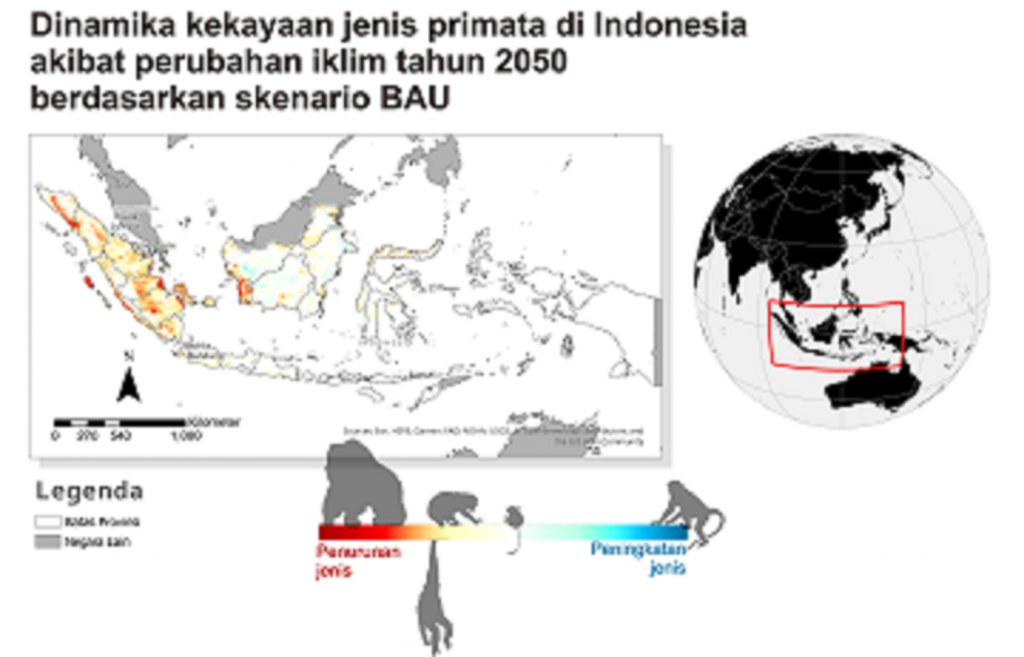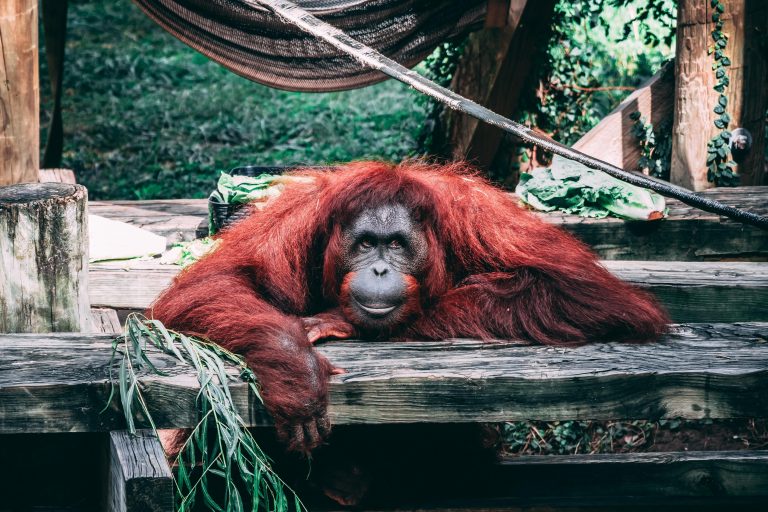
BOGOR – At least 30 primate species will experience extinction in 2050 as an impact of climate change. This was stated by Aryo Adhi Condro, a doctoral student at IPB University, and his team from the Department of Forest Resources Conservation and Ecotourism, Faculty of Forestry and Environment.
The IPB team explored the impact of climate change on primates in Indonesia through an ecological niche modeling approach. “About 30 species of Indonesian primates will become extinct due to climate change, including the Sumatran orangutan and the Javan slow loris,” he explained, as reported by the official website of IPB University, Thursday (10/3).
He said, in addition to land shrinkage, the increase in regional air temperature is also believed to cause a decrease in metabolism and a decrease in the rate of reproduction of these primates. Another thing that increases the threat of extinction is a decrease in the abundance of feed.
In regard to the impact of the plan to move the National Capital City (IKN) to Kalimantan Island, Aryo explained that from the ecological aspect, Bornean orangutans have a relatively high adaptive capacity compared to their siblings such as the Tapanuli orangutan and the Sumatran orangutan. Based on Population and Habitat Viability Analysis (PHVA) data, no existing habitat for the Bornean orangutan was found in the IKN candidate area. “However, if there is a population in the IKN, the Bornean orangutan will be very sensitive to land changes which will certainly occur when the infrastructure development of the new capital city is built,” he said.
Aryo added that apart from orangutans, many other wildlife are threatened, both on land and at sea. “They have the potential to be threatened by the development of the IKN area. Examples include proboscis monkeys, dolphins, dugongs, dolphins and turtles,” he added.
Aryo also warned that due to the real impact of climate change on Indonesia’s biodiversity, “if we do not act immediately to protect the sustainability of conservation areas, then environmental threats will continue to reduce primate populations rapidly.”(Hartatik)















